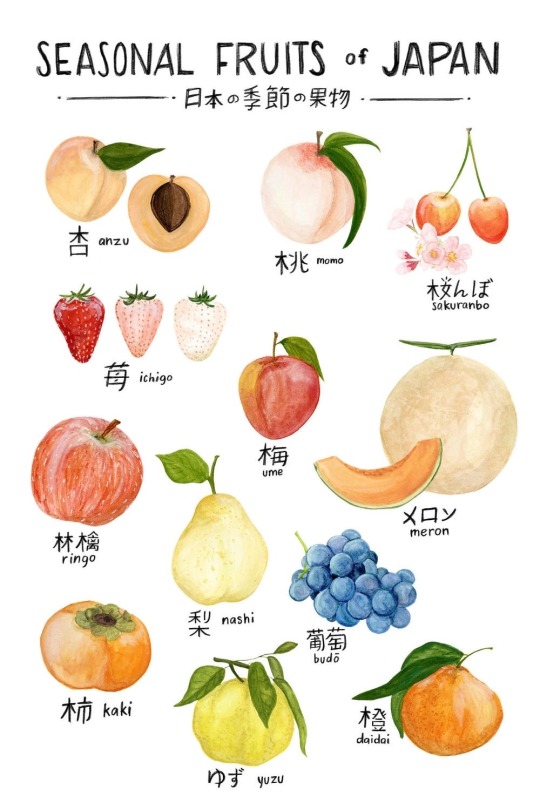Text

今日の朝ご飯:チョコレートワッフルとモカココナッツラテ。友達に合って、一緒ワッフルを食べて、楽しめました。(*´ω`*)
had chocolate waffles and a mocha coconut latte for breakfast today. I met my friends, we ate waffles and had a good time. (*´ω`*)
6 notes
·
View notes
Text
どうやって日本語上手になるかな..4年から日本語習いはじめまたけどまだ下手と思う。日本語話す友達がつければと思っている。(个_个)
9 notes
·
View notes
Text
今日図書でドラえもんを読んでみた!今までにどこでもドアが一番使いたいもの。もしも、どこでもドアを使ったら、スイスや日本に行くだろう。みんな、一番欲しいドラえもんの道具は?
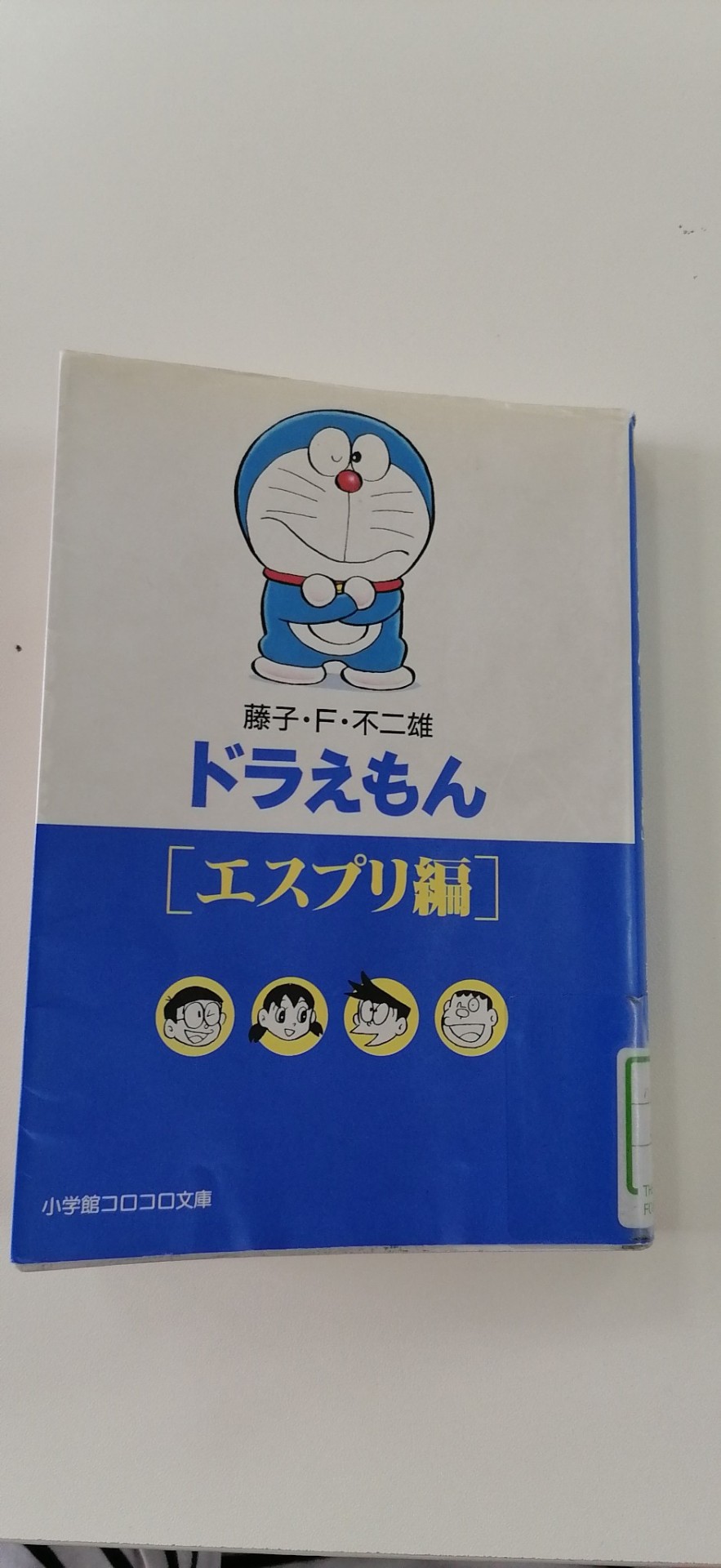
1 note
·
View note
Text
今日の勉強: 新しい単語と文法のルールをたくさん学びました。 ✧◝(⁰▿⁰)◜✧
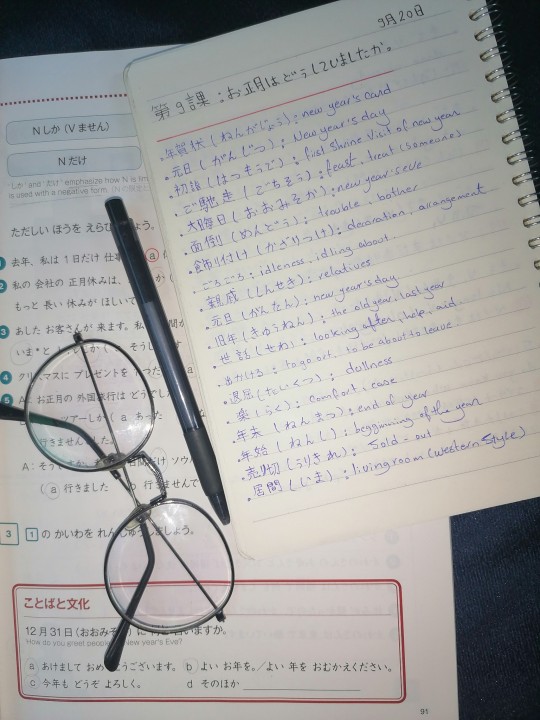
12 notes
·
View notes
Text
勉強中に見つけたこのすばらしいことわざをシェアしたいと思いました。また、今日の空もとても美しく見えました ! ^^


11 notes
·
View notes
Text
今日は早起きして、音楽を聞きながら語彙と文法を復習しました。勉強しながらクラシック音楽を聞くのがとても好きで、これが最近プレイしているプレイリストです。(。・ω・。)ノ
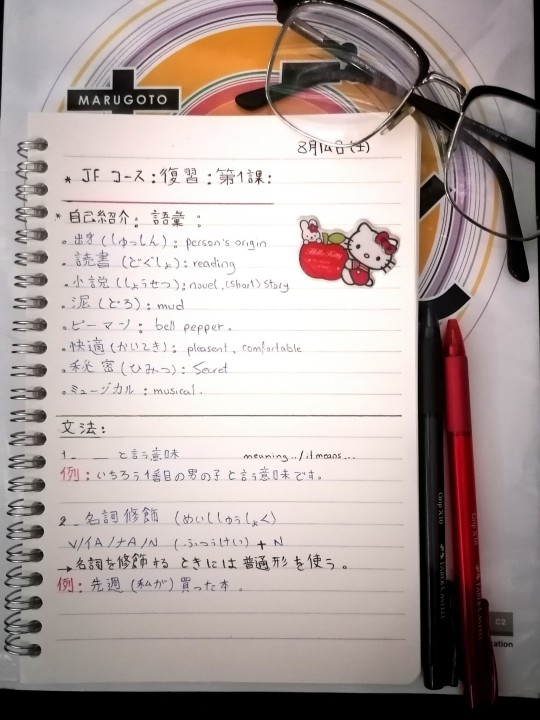
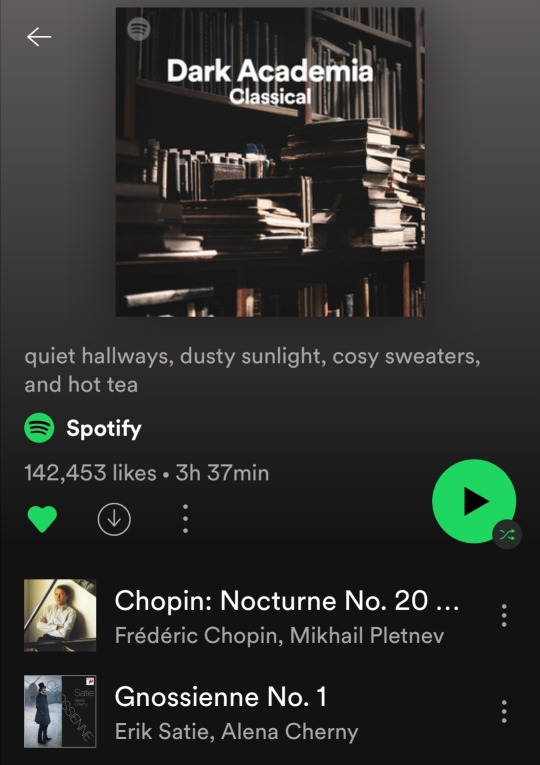
#japanese#日本語の勉強#studyinspo#日本語#プレイリスト#音楽#勉強#クラシック音楽#studyblr#studyspiration#grammar#文法#語彙#vocabulary#spotify#music#aesthetic
22 notes
·
View notes
Text
今日書道をしました。喜びの漢字を書きました。それは私の大好きな漢字です。なぜなら、それは私の友達の「joy 」を思い出させるからです! ୧(^ 〰 ^)୨
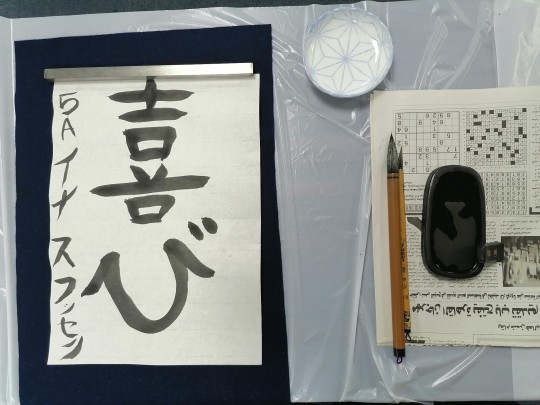
19 notes
·
View notes
Text
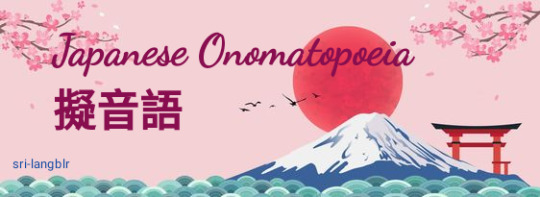
擬音語 (ぎおんご)
Onomatopoeia in Japanese
The Japanese language has a large inventory of sound symbolic or mimetic words, many of them are used in spoken Japanese as well. These ae used to describe an action/ or a sound that an action produces or just a state of smth based on its taste or appearance.
Here's my list of onomatopoeia in Japanese but there are many many more- remember that you can write these in both hiragana as well katakana, whichever you want to use.
モチモチ chewy
フワフワ fluffy
サクサク crispy
サラサラ crunchy
バリバリ soupy
ギトギト oily
ザーザー sound of heavy rain
ピューピュー the whistling sound of blowing wind
ゴロゴロ sound of thunder
ワンワン woof woof
ニャン meow
ニャーニャー meow meow
カーカー crow cawing
ブーブー oink
メーメー sheep's baa baa
ズルズル slurp sound
ガブガブ glup a drink
ブツブツ grumble (complain)
ドキドキheartbeat
パタパタ flapping (of flag/cloth) in wind
ニコニコto grin
ゲラゲラ roaring w laughter
ラブラブ to be in love
ゴロゴロ to be idle/ laze around (the same word as the one for thunder)
シクシク to weep or sob
キョロキョロ to look around restlessly
パケパケ heartily eating
グウグウ fast asleep or snoring
スラスラ to read smoothly
ザラザラ to feel rough (a surface)
ベタベタ to feel sticky (surface)
ツルツル to feel smooth/ slippery/ sticky (surface)
ワクワク excited
イライラ irritated
メロメロ madly in love or drunk
キラキラ glittering/ twinkling (of stars)
ピポピポ siren
マゴマゴ confused
お腹がペコペコ to be hungry
ジロジロ見る to stare
ウルウル teary eye
ムキムキ muscular
スラスラ (to read) fluently
How to use the onomatopoeia in a sentence?
They are used as an adjective but can also be used as an adverb.
For example-
フワフワケーキですね!(What a fluffy cake!)
雨がザーザー降っている。(it's raining heavily)
____________________________________
Thank you for reading, I've added a I knew and some extras that I've found newly.
Please reblog if you have found this of any help ☺️ and have a nice day . I'm going to post more things like this, soon ❣️
~~~Sri <333
________
396 notes
·
View notes
Text
The difference between: のに、が、ても.
のに: conveys a feeling of surprise or dissatisfaction , expresses the speaker's feelings about something that actually happened.
例: 今日は日曜日なのに、働かなければなりませ。
-> I have to work today despite the fact that it's sunday. ( Shows dissatisfaction )
が: connects two statements in an anthitecal relationship
例:日本の食べ物はおいしいですが、高いです。
Japanese food is delicious, but expensive
~ても: express a contradictory conclusion in a hypothetical situation
例:あした雨が降っても、サッカーをします。
-> we're going to play soccer tomorrow even if it rains
10 notes
·
View notes
Text
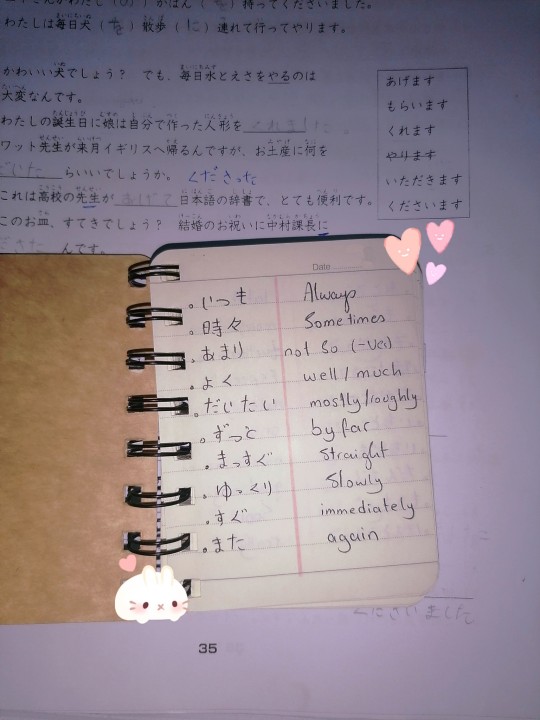
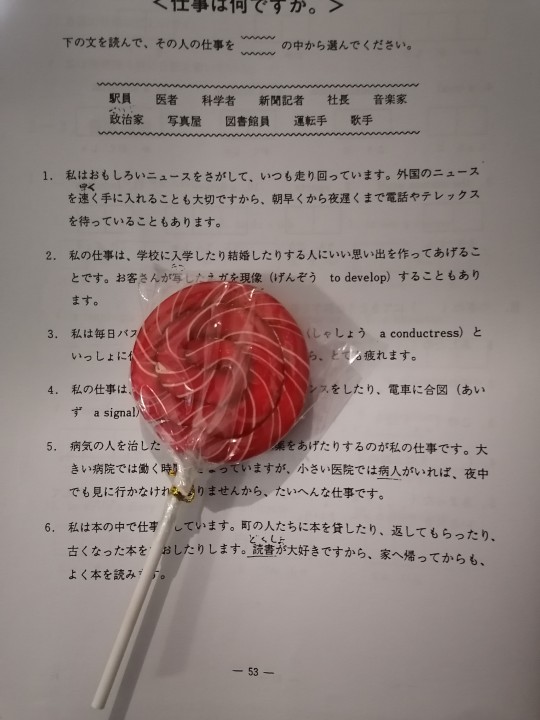
Had this small notebook my friend gave me so I wrote some words that I often forget in it. Also, my sister gave me this lollipop cause I was kinda having a hard time in college, very sweet of them .
この小さなノートを友人がくれたので、私はよく忘れる単語を書きました。姉もこのロリポップをくれました。なぜなら、私は大学時代に苦労していたからです。とても気に入っていました。
3 notes
·
View notes
Text
1 Month Grammar Challenge Day 24 - ~にこたえて, ~におうじて
Day 24 - Put these two together because they both comes from verbs that can mean “respond”, so I will tend to mix them up. The nuances are different between the two, so it is worth knowing the difference.
~にこたえて
名 + にこたえて, 名 + にこたえる + 名
“In response to”
Something is done in response to someone’s hopes or wishes. A formal/written phrase used with words like 期待, 希望, 要望, アンコール, etc.
例)部長の要求にこたえて、締め切りまで一生懸命働いた。
例)彼は両親の期待にこたえて大学で医学を勉強している。
~におうじて
名 + におうじて, 名 + におうじる + 名
“In accordance with; depending on”
Something changes in accordance with something else that changes e.g. 体力, 年齢, 天候, etc. It is followed by expressions that mean “certain change happens in accordance with N”, e.g. 加減する, 戦法を変える, etc.
例)明日のエベントは外で行うので天候におうじて人数が変わる。
例)体力におうじて運動を変えることが必要です。
42 notes
·
View notes
Text
arigato for all the memories even though they weren’t so sugoi
89K notes
·
View notes
Note
May I add that なん is used when
1− it precedes a word whose first sound in the た、だ or な row
Example : それはなんですか。(What's that ?)
なんの本ですか。(what's that book about ?)
寝るまえに、なんと言いますか。( What do you say before going to sleep?)
** なんで is used for asking (why or how)
なにで can be used when the speaker wants to make it clear that he or she is asking (how)
2- when using it as a counter suffix
Example: ミラーさんはなんさいですか。( How old is miller ?)
While なに is used in all other cases.
Example: なにを買いますか。
( what are you going to buy)
Source: Minna no nihongo text book
こんにちは、むカさん。Would you mind explaining when to pronounce 何 as なに vs なん? ありがとうございます!
Thank you for your message!
It's a difficult question.😅
I checked it.
when we use 何(なに)
どんな"もの" (=what kind of )
何色(なにいろ): what kind of color
何語(なにご): what kind of language
when we use 何(なん)
いくつ (=how many)
何色(なんしょく): how many colors
何語(なんご): how many words
Sorry I couldn't explain well.😭
110 notes
·
View notes
